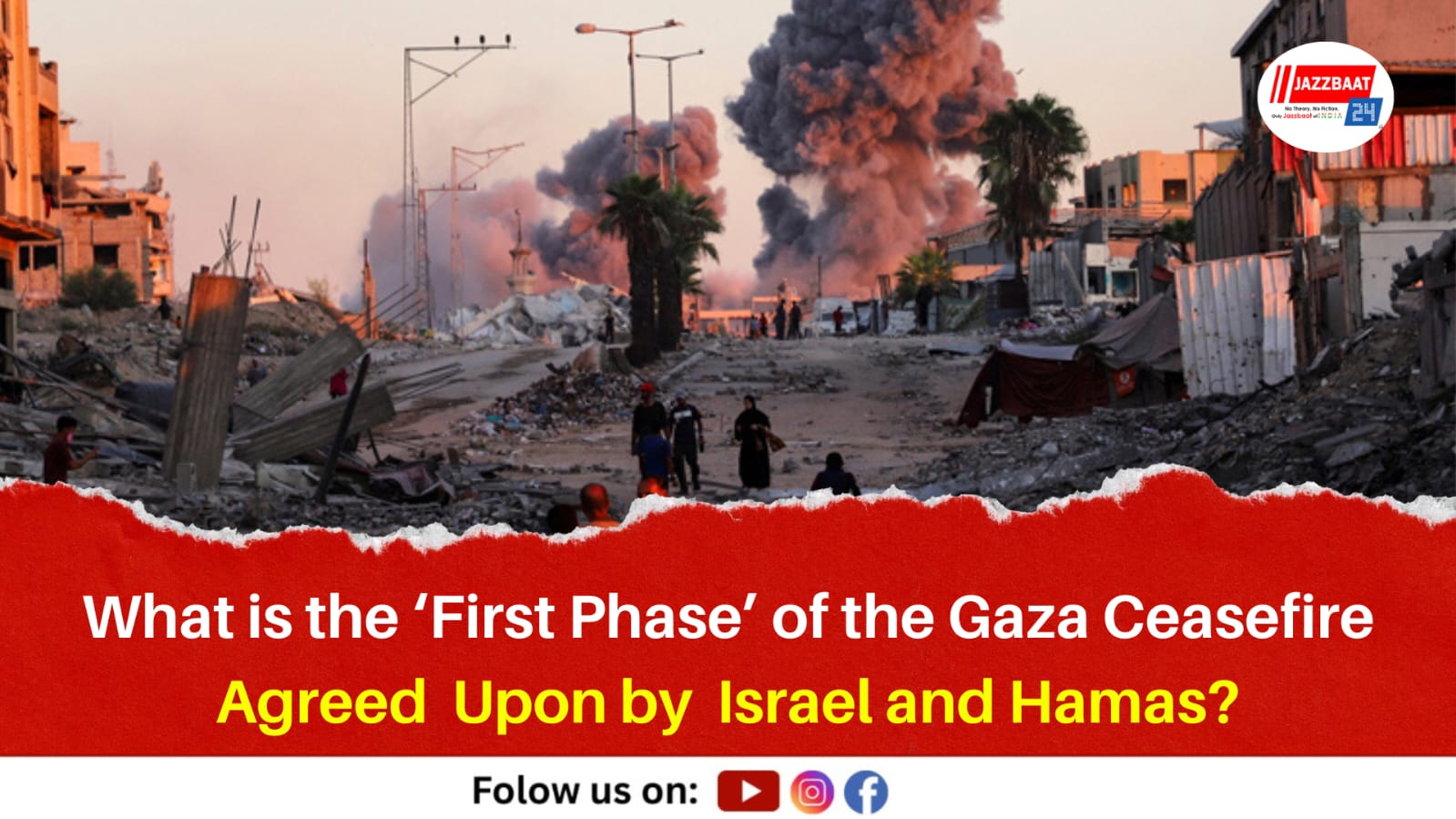Israel and Hamas have reached a crucial understanding over a ceasefire deal aimed at bringing an end to the prolonged and devastating conflict in Gaza. The agreement was finalised during the negotiations in Cairo, which resumed after both parties agreed to US President Donald Trump’s 20-point peace plan. Following intense deliberations, Israel and the Palestinian militant organisation Hamas arrived at a consensus regarding the first phase of the ceasefire. According to diplomatic sources, the official signing ceremony of this agreement is expected to take place on Thursday in Egypt. Furthermore, President Trump is also expected to visit both Israel and Egypt later this week, underscoring Washington’s role as a key mediator in this peace initiative.
Under the first phase of the ceasefire, Hamas will release the 48 Israelis who have been held captive since the October 7 attack. However, reports indicate that only around 20 of these captives are believed to be alive. In exchange for the hostages, Israel will release Palestinian prisoners who have been detained in Israeli prisons over the years. Based on the model of the previous ceasefire arrangements, it is expected that for every Israeli hostage released, at least 100 Palestinians will be freed. According to the White House, once all hostages have been released, Israel will go on to release an additional 250 Palestinians who are serving life sentences, as well as 1,700 Gazans detained after the October 7 Hamas attack, including women and children. The White House further stated that for every Israeli hostage whose remains are returned, Israel will release the remains of 15 deceased Gazans. President Trump’s Gaza plan also specifies that all hostages - both living and deceased - must be returned within 72 hours of Israel’s public acceptance of the agreement.
In addition to the prisoner and hostage exchange, the first phase of the ceasefire will also facilitate the entry of essential humanitarian assistance into Gaza. The Qatari Foreign Ministry has confirmed that food, medicine, and emergency relief will be allowed into the famine-stricken Palestinian territory. President Trump’s plan further mandates that once both sides officially agree, all military operations - including aerial and artillery bombardments - will be suspended. The battle lines will remain frozen until all conditions are fulfilled for a complete, phased withdrawal of troops and military assets, thereby preventing any immediate resumption of hostilities.
This breakthrough comes just days after the world observed the second anniversary of the war in Gaza. On his social media platform Truth Social, President Trump hailed the development as a monumental step towards lasting peace in the region. “This is a GREAT day for the Arab and Muslim world, Israel, all surrounding nations, and the United States of America,” he wrote, expressing gratitude towards mediators from Qatar, Egypt, and Turkey “who worked with us to make this historic and unprecedented event possible.” He concluded his post with the words, “BLESSED ARE THE PEACEMAKERS!” signalling his administration’s pride in facilitating this major diplomatic milestone.
The Gaza war initially broke out on October 7, 2023, when Hamas launched a brutal terror attack in southern Israel, killing approximately 1,200 people and taking around 250 hostages. In retaliation, Israel imposed a complete siege on the Gaza Strip and formally declared war on Hamas. Since then, the conflict has led to immense destruction and loss of life - with an estimated 67,000 Palestinians killed, the majority of them women and children. The humanitarian situation in Gaza has deteriorated drastically due to Israel’s blockade on aid supplies, which has prevented essential goods such as food, fuel, and medicine from reaching civilians. As a result, the United Nations has declared a state of famine in several parts of the Gaza Strip, warning of an impending humanitarian catastrophe if aid does not reach the population soon.
The newly agreed ceasefire thus marks a significant diplomatic moment after two years of relentless violence and suffering. However, much will depend on whether both sides honour the commitments laid out in the first phase of the plan, paving the way for a lasting peace and an eventual resolution to one of the most entrenched conflicts in modern history.
